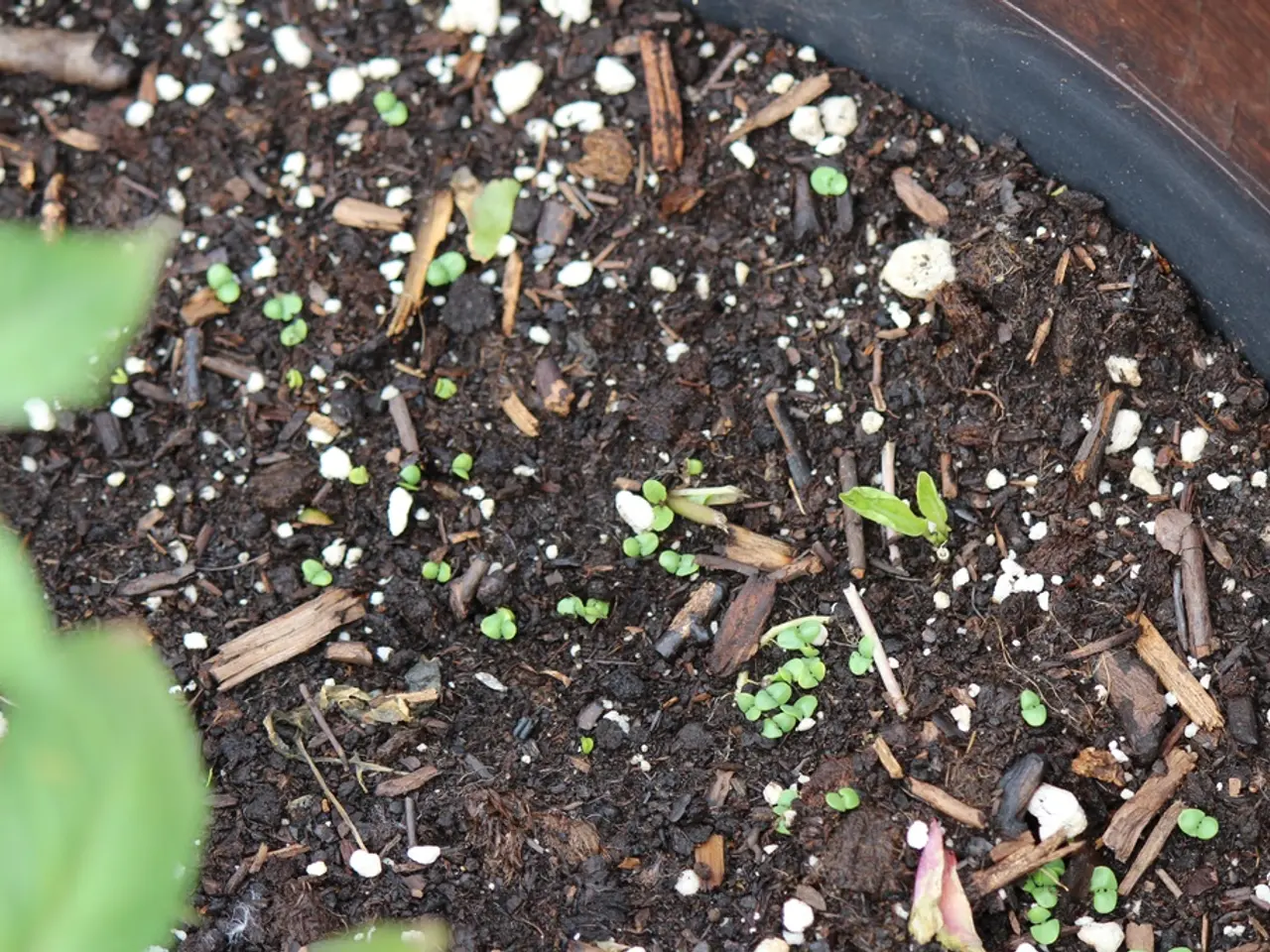Persistence of Herbicides in Compost: Does Herbicide Remain in Hay?
In the world of gardening, herbicide carryover can be a silent yet destructive threat. This condition occurs when herbicides remain active in compost and other garden amendments, causing damage to plants when they are applied.
Herbicides such as picloram, aminopyralid, and clopyralid, which are often used to combat broadleaf weeds, can persist for months and even years. These persistent herbicides can originate from treated forages or pastures and pass through livestock, contaminating manure and compost.
To prevent herbicide carryover, it is essential to investigate and verify the source of your amendments. Avoid compost, manure, straw, or hay that might have come from fields treated with these persistent broadleaf herbicides. Similarly, it's advisable to avoid using manure or compost from animals fed on hay or straw from treated fields. Even thorough composting does not reliably break down these persistent herbicides.
Another preventive measure is to use bioassay tests to check for herbicide residues in compost or amendments before applying them to sensitive plants, especially broadleaf crops. These tests can help detect contaminated compost before use, preventing crop damage.
It's also crucial to be cautious with soil amendments and residues from treated fields or pastures, particularly where broadleaf crops will be grown. Residual herbicides may persist in the soil for up to several years after contaminated amendments are applied.
In summary, the best way to avoid herbicide carryover is to source amendments carefully, avoid using manure/compost from livestock fed on contaminated hay, and test amendments with bioassays before application.
Herbicide carryover can mimic several other plant problems, such as under-watered plants, plant diseases, herbicide drift, and the presence of insects. Signs of herbicide carryover include stunted growth, misshapen plant material, poor seed germination, and death of young seedlings. If contamination occurs, the area cannot be planted in for 12 months due to high toxicity.
As of now, there are no suggested chemical or physical methods to neutralize these specific persistent herbicides once present. Therefore, prevention by careful selection and testing of amendments is the primary strategy.
Remember, a little vigilance can go a long way in maintaining a thriving garden. Happy gardening!
Summary:
- Verify the source of your amendments to avoid herbicides from treated forages or pastures.
- Avoid using manure or compost from animals fed on contaminated hay.
- Use bioassays for herbicide residue detection in compost or amendments before application.
- Be cautious with soil amendments and residues from treated fields or pastures, especially where broadleaf crops will be grown.
[1] University of Washington Extension. (n.d.). Herbicide carryover in compost and manure. Retrieved from https://extension.washington.edu/whatcom/gardening/yard-and-garden-pests/herbicide-carryover-in-compost-and-manure/ [2] National Gardening Association. (n.d.). Herbicide carryover. Retrieved from https://www.garden.org/learn/articles/view/17269/ [3] Oregon State University Extension Service. (n.d.). Herbicide carryover in compost and manure. Retrieved from https://extension.oregonstate.edu/news/herbicide-carryover-compost-and-manure [4] Michigan State University Extension. (n.d.). Herbicide carryover in compost and manure. Retrieved from https://www.canr.msu.edu/news/herbicide_carryover_in_compost_and_manure [5] Cornell University Cooperative Extension. (n.d.). Herbicide carryover in compost and manure. Retrieved from https://blogs.cornell.edu/vegetablemd/2015/03/17/herbicide-carryover-in-compost-and-manure/
- In the realm of health-and-wellness, awareness about persistent herbicides in compost could be the key to maintaining a thriving garden, as these chemicals can originate from treated forages and pass through livestock, contaminating manure and compost.
- For those interested in fitness-and-exercise and a balanced diet, understanding the importance of proper nutrition for plants could help them avoid the use of contaminated compost and amendments, ensuring the health of their broadleaf crops just as they would care for their own health.




